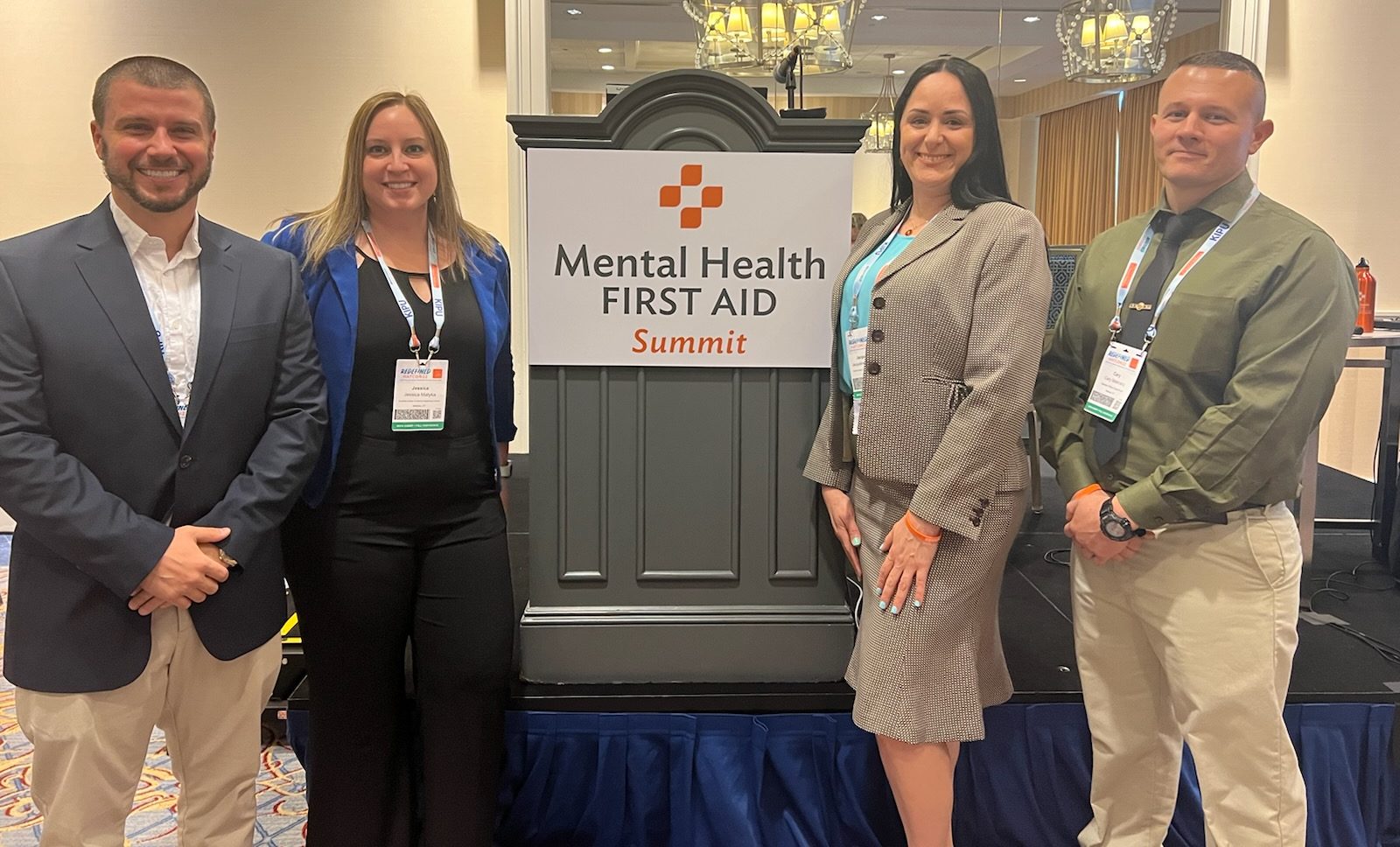The Meriden Opioid Referral for Recovery (MORR) project is expanding and making waves across the country for its unique brand of community partnering and impressive results battling the national opioid epidemic.
The collaboration between Rushford, City of Meriden and Meriden first responders focuses on directly addressing the current opioid crisis by supporting administration of Narcan in the field and then referring individuals to the specialized MORR staff embedded on Rushford’s Crisis Team. The team then guides individuals on their path to recovery.
“We are able to partner with police when they are on behavioral health calls, either by arriving on scene after or utilizing a co-responder model to be dispatched directly with the officer,” said Jessica Matyka, LCSW, director of Crisis and Community Programs at Rushford.
Real progress is being made. In the first three years of the MORR program, Narcan was deployed 411 times by Meriden first responders, an average of 13 times per month. While this number may represent duplicate individuals, 202 individuals (about 49 percent) were referred to the MORR program. Among these referrals, 93 percent were referred because they experienced an opioid overdose.
Meriden Police Sgt. Cary Maikranz has been involved in community policing and the partnership since its inception, and believes it’s a win-win for both Rushford and his department.
“The partnership with police is helpful because, in many cases, officers are trusted in the community and familiar with people in need of help. Officers can then respond with a clinician or make a warm handoff to the Rushford team for follow up. It gives the team a degree of credibility and facilitates contact with people they not have otherwise met in person due to the relationship the officers have with the community,” Maikranz said.
The MORR program also helps reduce crime-related incidents caused by opiate abuse, as those referred to treatment may no longer find themselves having negative encounters with law enforcement as a result of their addiction.
“The program also helps reduce emergency calls to 911. If people now have a clinician they know they can call for assistance when they are in need, then they are less likely to call 911, thus alleviating extra stress on the system,” Matyka said .
Team interactions, she added, show people need to take care of basic human needs like adequate food, shelter and clothing before entering a meaningful conversation about addiction and beginning treatment. If clinicians can gain trust providing basic care, a better working relationship can begin.
The MORR program is also paying off on a more personal level. The first patient referral more than four years ago underwent specialized training and is now employed with the Behavioral Health Network as a recovery support specialist.
MORR team leaders were recently invited to Washington, DC, to present at the National Council for Mental Wellbeing conference on developing and maintaining successful community collaborations.


